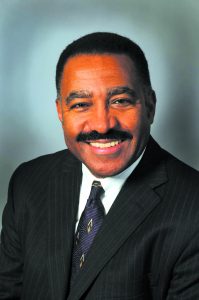Raw Politics: The Tangled Ballot We Weave
This November: Housing, Sidewalks, Tax Cuts And Mescaline
By Penfield W. Tate III
For the GPHN

It is a concept fundamental to government in Colorado, owing its origins to our 1876 state constitution. It is found in Article 5, Section 1 Subsection (2) — the right of citizens to initiate a measure to the ballot.
Amending the constitution via direct democracy (as opposed to leaving it up to elected officials) has been carried down to the local level as well. As per the 1960 Denver City Charter in Part 3, Section 8.3.1, Denver citizens also have the right to initiate measures to the ballot.
When initially conceived, the initiative process was a way for voters to raise measures for public consideration that elected bodies were either reluctant or uncomfortable to vote on. Given the proliferation of initiated measures — during this cycle alone over 151 measures were filed with the Colorado Secretary of State — this constitutional right has been increasingly weaponized over the last few decades.
Referring an initiative to the ballot has become a tool that elected bodies use — and it’s often the result of a refusal to act. Sometimes it’s an absence of political courage or concern of voter backlash. Sometimes it’s a simple desire to avoid uncomfortable or unpopular topics. Indeed, they may think, why vote on a measure that constituents may find unpopular — regardless of how you vote — when you can simply turn it over to the voters to decide?
Promise of ‘good things’
In some instances, particular communities of interest prefer using the initiative. In this way they can take advantage of a process where information is not widely disseminated. They can adopt confusing wording or creative messaging that is not well explained or debated in a moderated fashion for voters. Often, a catchy title or slogan and the promise of “good things” can win elections— even when the issue being decided in reality is not what it seems.
It used to be that if voters had to work too hard to understand something, they simply voted “no.” But with the large sums of money behind the messaging on some campaigns, the tag lines alone can secure a “yes” vote.
Let us look at a few on the ballot this November.
TABOR and mushrooms
On the statewide level, voters will consider Initiative 31. This proposal, sponsored by the libertarian Independence Institute, would lower the individual and corporate tax rate in Colorado from 4.55 percent to 4.40 percent. We have seen similar measures repeatedly over time driven by the requirements of the Taxpayer Bill of Rights (TABOR) and a desire to continue to shrink the size of government. Results in the past have been mixed, and this one has not yet been widely discussed, but will likely see considerable attention as time moves on.
Colorado has been at the forefront of the legalization of cannabis, both for medicinal and personal use. That spirit of legalization will be challenged in an interesting fashion this year as Initiative 58, the “Natural Medicine Health Act of 2022.” Borrowing from a similar concept approved by Oregon’s voters in 2020, the idea is to add “natural medicine” for treatment options for mental health issues, including suicidality, addiction, depression and anxiety. The regulated program would legalize the use of substances like mescaline, peyote and psilocybin – all plant-based psychedelic substances for persons 21 or older.
Expect up to five more statewide measures to make the ballot and prepare to study.
Sidewalks and tenant assistance
Many local measures will also deserve attention. Denver Streets Partnership is pushing a measure to establish a sidewalk enterprise under TABOR, with the ability to issue revenue bonds payable by sidewalk service charges assessed on all property owners.
The city would be charged with developing and implementing a sidewalk master plan for the construction, reconstruction and ongoing repair of sidewalks throughout the city. The charges would be assessed annually based on the linear footage of property, with the average single family home projected to pay a little over $100 a year. The sidewalk service charges for property owners in historically underserved areas including East Colfax, Elyria, Swansea, and Montbello will pay a discounted amount.
Housing — affordable and otherwise — as well as homelessness are the issues most on the minds of people in Denver today. Another proposed initiative would create a program to provide free tenant assistance and legal services to tenants who face the loss of housing in eviction or administrative proceedings and establishes a new Tenants’ Legal Services and Assistance Coordinator. The measure will increase Denver’s taxes by no less than $11,986,875 annually through a $75 fee assessed to landlords for each non-exempt residential unit leased. Expect to hear and see a lot about his proposal in coming months.
Next month, we will talk about the statewide candidate campaigns, the congressional campaigns, the state legislative races and the U.S. Senate contest. I hope you had a great summer. Watch out for school kids as you drive in the neighborhood.
Penfield W. Tate III is an attorney in Denver. He represented Park Hill in the Colorado House of Representatives from 1997 to 2000, and in the State Senate from 2001 to February 2003. He lives in Park Hill.
